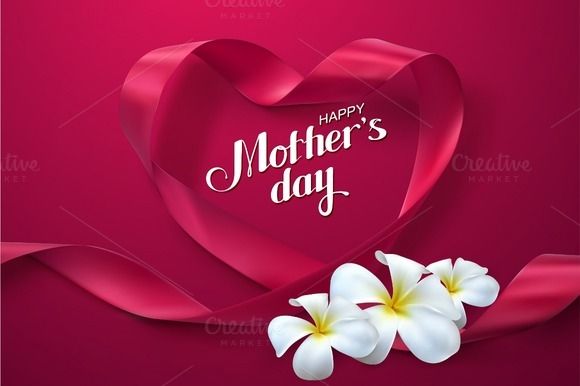A BBC documentary on Modi’s role in the 2002 Gujarat riots has stirred controversy in India. The two-part film, titled “India: The Modi Question,” has triggered criticism from the government for its apparent bias and lack of objectivity.
Indian foreign ministry spokesman Arindam Bagchi accused the BBC of peddling a discredited narrative. He said that the documentary lacked objectivity and reflected a continuing colonial mindset.
The Documentary
The two-part bbc documentary on modi, India: The Modi Question, explores the controversial rise of India’s prime minister. Its focus is on the alleged role of the Indian PM in a series of Hindu-Muslim riots that took place in Gujarat state in 2002 when he was chief minister. It is estimated that more than 1,000 people were killed, and a further 150,000 were uprooted in the violence. The documentary argues that Modi encouraged Hindu mobs and instructed police to stand by and watch. While a supreme court investigation exonerated him of involvement in the violence, allegations have persisted.
It also reveals an unpublished secret report by the British government that said that Modi and his party, the Bharatiya Janata Party (BJP), as well as Hindutva leaders and activists, were involved in encouraging the riots. The documentary cites the report as evidence that the riots were politically motivated and that the state government had its own role to play in them.
The documentary has caused controversy in India, where the prime minister has defended his actions and accused the BBC of bias and a continuing colonial mindset. It has been blocked on YouTube and Twitter, and India’s government has imposed restrictions on the broadcasting of the film. The Indian authorities claim that the documentary is “hostile propaganda” against the country and has tarnished Modi’s image.
Nevertheless, the documentary has generated discussion on social media and at home, and it has been seen by many people. The debate has highlighted the need for greater transparency on social media and in other areas. The controversy has also drawn attention to the need for a more diverse and inclusive society.
The documentary also raises questions about the way in which politicians, such as Modi, are being courted by western countries, such as the United States and the UK. The US and the UK are seeking to strike trade deals and forge close political ties with India, which is considered one of their biggest allies in Asia. But the documentary highlights alleged human rights abuses by the Modi regime and could threaten those ties in the future.
Part One
The first part of the BBC documentary series on Modi titled “India: The Modi Question” was aired last week in the U.K. and focuses on allegations surrounding the 2002 Gujarat riots. It also talks about how Modi used these riots to come to power in India in 2014. The Indian government has criticized the program saying it lacked objectivity and reflected a continuing colonial mindset. It has also blocked online portals and social media from showing the video. Despite this, people have been able to access the film by using VPN services.
While these allegations are not new, this documentary is one of the first to revisit them with the specific aim of determining how they might play into the current government’s agenda. Its release has triggered outrage from the Indian government and led to a boycott of the BBC by several rightwing groups. The government has also ordered the blocking of YouTube videos and Twitter posts that share links to the documentary.
This move has been criticized by opposition parties and civil society groups as censorship. While the documentary’s claims may not be completely accurate, it does raise important questions about how Modi and his BJP-RSS alliance are running the country. In addition, the film raises concerns about how the Indian judiciary is functioning in a way that limits freedom of expression and the rights of minorities.
One of the most interesting aspects of the documentary is that it mentions how police officers who took a stand against Modi and the BJP have been punished. This includes former cops who testified that they were present at a meeting in which Modi gave instructions to pull back the police and tacitly encourage Hindu extremists during the riots. These cops were eventually arrested, and the documentary shows how these officers’ lives have been destroyed.
Another case cited in the documentary is that of Congress party MP Ehsan Jafri, who was killed during the riots. The documentary points out that Jafri called Modi to ask for help, but Modi denies that he ever received the call. The documentary also cites evidence that the police were instructed to shoot at Muslim civilians during the riots, and that Hindu fanatics were baying for their blood.
Part Two
The BBC’s two-part series on Indian Prime Minister Narendra Modi has triggered a furious backlash in India. Tax officials have inspected the broadcaster’s offices in Delhi and Mumbai, and an investigation into its foreign exchange operations has been opened. The controversy stems from a documentary that claims the PM was “directly responsible” for the 2002 Gujarat religious riots when he was the state’s chief minister. The allegations were made in the film India: The Modi Question, which aired in January.
The first part of the documentary begins with a build-up of ominous music before the big reveal – a declassified cable from a British diplomat who stated that Modi was directly responsible for the pogrom against Muslims in Gujarat in 2002. The document then reveals that the police had been told to stand off and allow Hindu mobs to run riot, and a former police officer says Modi himself was present at a meeting where these instructions were given. He also states that Modi encouraged the Hindu mobs. Several other witnesses also testify that Modi gave the same orders. The second part of the documentary focuses on lynchings and other hate crimes, including cow vigilantism, under Modi’s rule. It also looks at the PM’s relationship with India’s Muslim minority.
Despite Modi being cleared of involvement in the riots by a Supreme Court-ordered inquiry, the controversy continues to haunt him. He has been accused of failing to intervene in the violence and was banned from visiting the US based on these concerns. He eventually won the US visa after he was elected prime minister in 2014.
India’s government has responded to the documentary with outrage, calling it a propaganda piece. It has blocked access to the film within the country and blocked Twitter links shared by its critics. But opposition MPs Devyani O’Brien and Prabhat O’Brien have resisted the ban, saying that it is an attack on freedom of speech.
Final Words
The documentary focuses on Modi’s leadership during anti-Muslim riots in the state of Gujarat in 2002, which left more than 1,000 people dead. It cites a British Foreign Office report that says Modi was “directly responsible” for the climate of impunity that allowed the violence to occur. It also criticizes his government’s policies towards India’s Muslims. The film was banned in India, where the government called it propaganda and invoked emergency powers to block its online distribution. Local authorities have shut down screenings and arrested students who tried to view it.
But the BBC is standing firm, saying the documentary was “rigorously researched” and took into account a range of voices and opinions. It also said it offered the Indian government a chance to respond but that it had declined. In the meantime, tax officials have inspected the BBC’s offices in New Delhi and Mumbai and opened an investigation into its foreign exchange operations.
A number of prominent Indians have spoken out against the documentary, including the author of a book about Modi’s rise to power, who says the film shows how “deeply flawed” the prime minister is. But the BBC’s decision to release the documentary has riled some in the country, with Modi supporters accusing it of being biased against India. Some have even attacked the BBC for employing staff of Pakistani origin.
In response, several activists have pushed back against the censorship of the documentary, with opposition members of parliament Mahua Moitra and Derek O’Brien posting links to it online. However, the links have been taken down, and YouTube has complied with requests from the Indian government to remove the video. YouTube spokesperson Jack Malon said the site had acted in accordance with its terms of service, but declined to comment on the reasons behind the removals. The documentary is expected to be available again soon. In the meantime, it is being screened at various campuses in the Indian state of Kerala, which is ruled by a communist party opposed to the BJP. It is also being distributed on Telegram, a messaging app that allows users to bypass Internet censorship in countries where it is blocked.
Conclusion
The BBC documentary on Modi provided a comprehensive exploration of the Indian Prime Minister’s life and political journey. It delved into his early struggles, rise to power, and controversial policies. While some praised his reforms, others criticized his handling of social issues. Ultimately, the documentary offered a nuanced portrait of a polarizing leader shaping India’s destiny.
FAQs:
- Is the BBC documentary on Modi biased? Answer: The BBC documentary on Modi aimed to present a balanced perspective, incorporating both positive and critical aspects of his leadership. However, like any production, it may have faced scrutiny over potential bias, prompting viewers to critically analyze its content and verify information from multiple sources.
Did the documentary cover Modi’s foreign policy initiatives? Answer: Yes, the documentary explored Modi’s foreign policy engagements, including his efforts to strengthen India’s relations with various countries and organizations. It highlighted key events such as his interactions with world leaders, international summits, and initiatives like “Act East Policy” to expand India’s global presence






